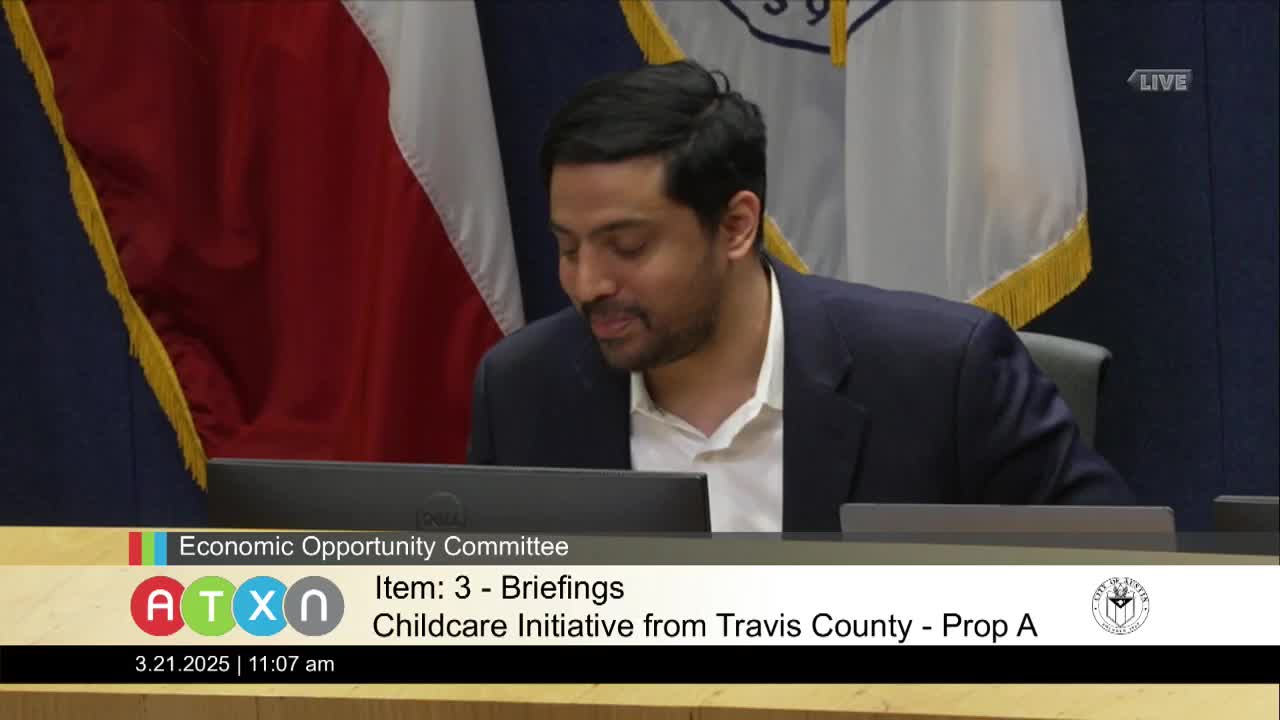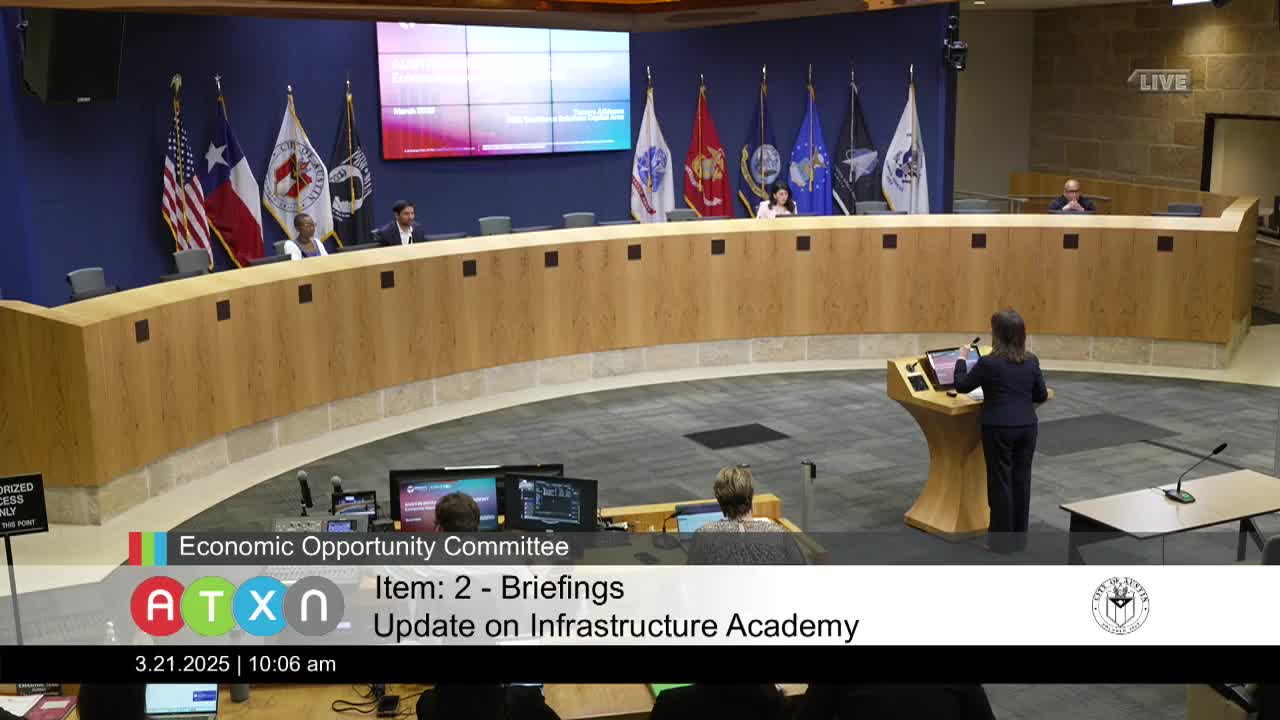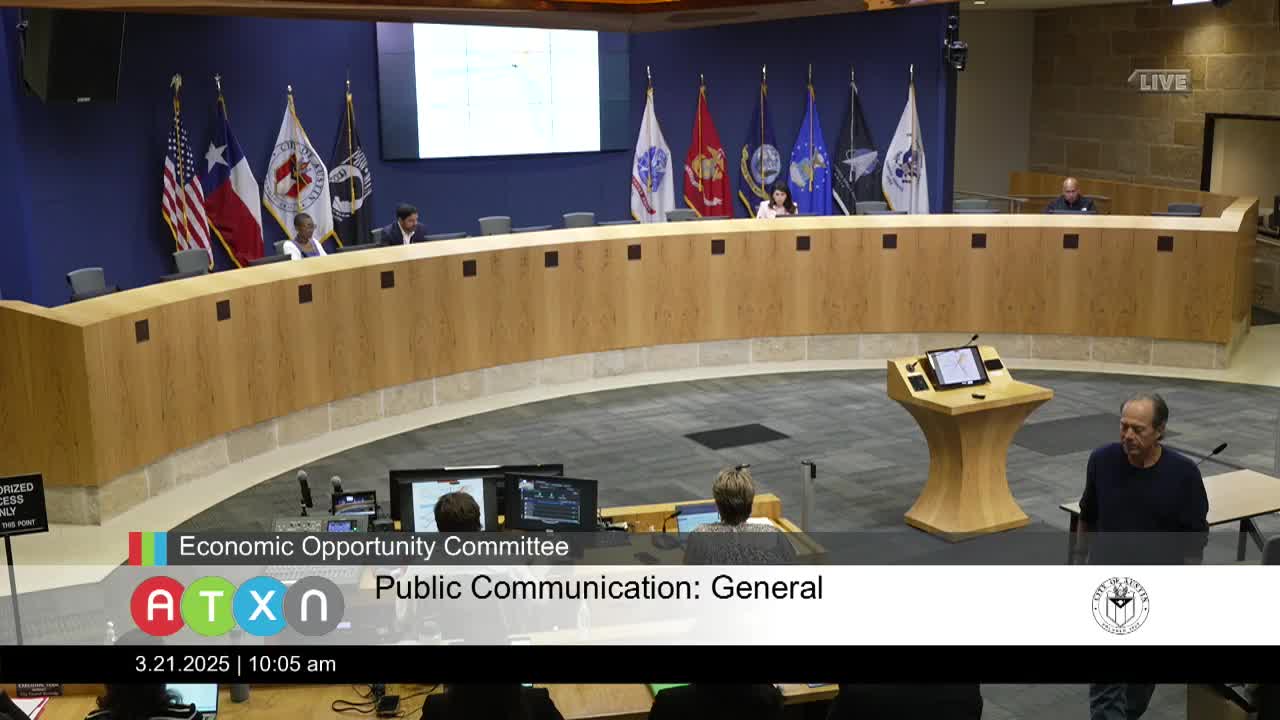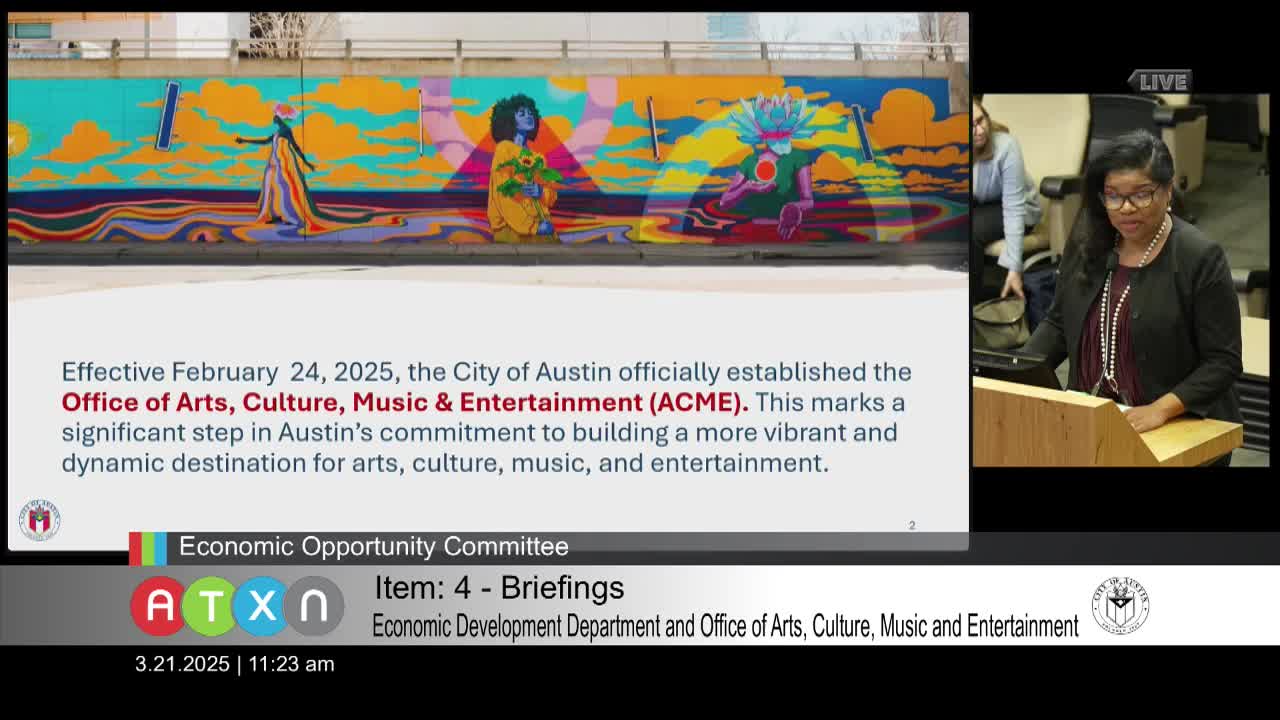Article not found
This article is no longer available. But don't worry—we've gathered other articles that discuss the same topic.

Travis County begins phased rollout of voter-approved Prop A childcare fund, seeks community input

Workforce Solutions outlines Infrastructure Academy launch, career navigation and childcare supports

Economic Opportunity Committee approves 2025 calendar

